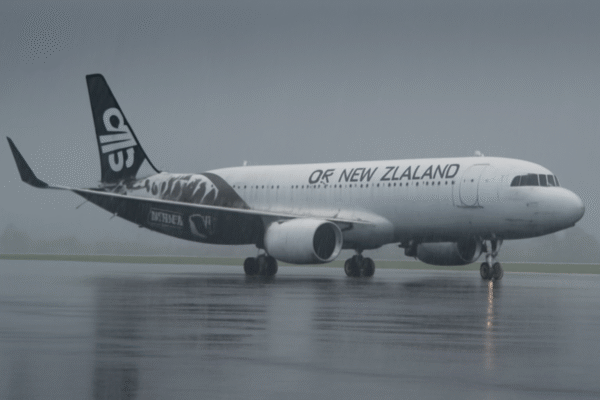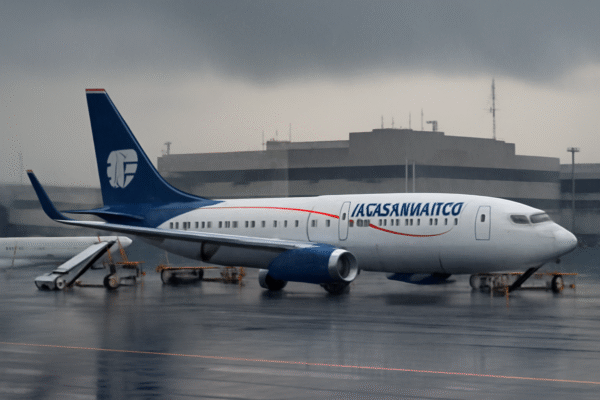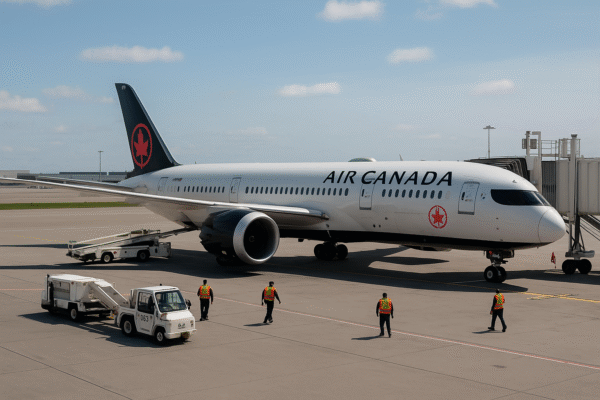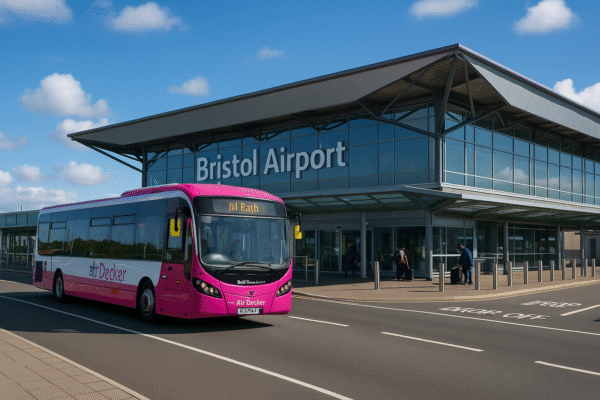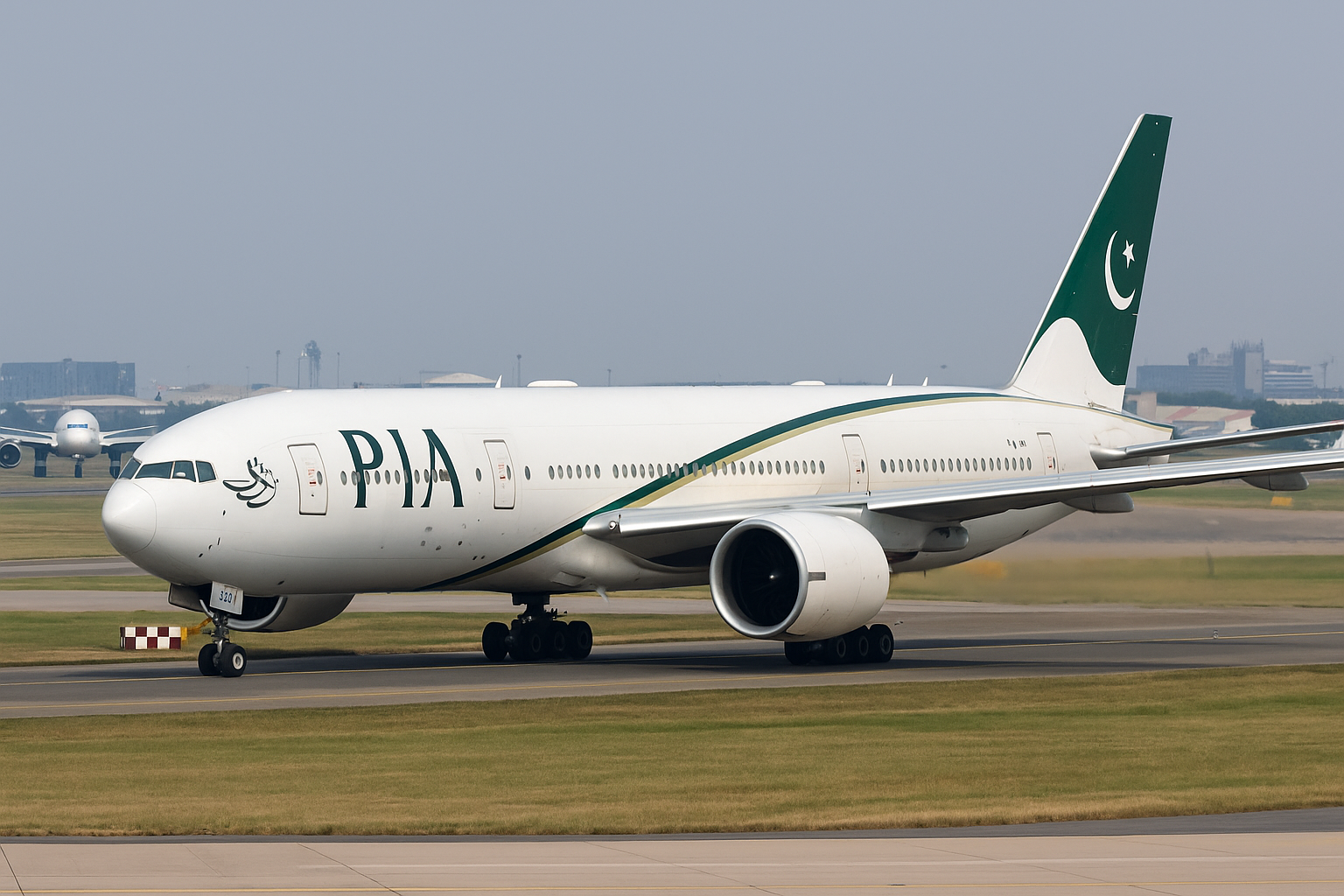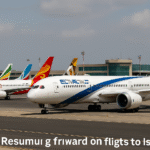In a welcome development for travelers and the aviation sector, Pakistan International Airlines (PIA) has resumed its suspended flights to Gulf countries after regional airspace reopened following a brief period of heightened security concern. The move comes after Qatar, Bahrain, Kuwait, the United Arab Emirates, and Saudi Arabia restored partial access to their airspace, enabling Pakistan’s national flag carrier to restart services that were abruptly halted earlier this week.
Regional Tensions Trigger Temporary Flight Shutdown
The suspension, which affected dozens of flights, was prompted by escalating tensions in parts of the Middle East. Though no formal airspace bans were issued, PIA and other carriers implemented precautionary suspensions in response to potential security threats. The airline cited passenger and crew safety as the foremost priority behind the disruption.
As a result, flights to and from major Gulf destinations were grounded or delayed for over 48 hours, stranding hundreds of passengers at airports in Karachi, Lahore, Islamabad, and Peshawar. PIA confirmed that more than 32 flights were canceled, and over 55 others were delayed, with many requiring last-minute rerouting or ground standby.
Gradual Resumption of Services
With the regional security outlook improving, authorities in Gulf countries have begun reopening air corridors. Qatar was the first to reauthorize selected routes, followed by Bahrain and Kuwait. The UAE and Saudi Arabia, while not having officially restricted airspace, gave operational clearance for services to resume.
PIA responded quickly by partially restoring flight operations, announcing limited service resumption across affected routes. Initial flights were dispatched to Doha, Dubai, Abu Dhabi, Riyadh, and Kuwait City, with gradual scaling expected as the situation stabilizes.
A spokesperson for PIA said,
“We are working closely with Gulf aviation authorities and local airspace controllers. Passenger safety remains paramount, and we are carefully phasing the resumption of flights in line with real-time risk assessments.”
Ongoing Delays and Passenger Advisory
Despite the partial resumption, passengers are being advised to expect continued delays. Many flights are still operating on modified schedules, and turnaround times remain extended due to air traffic congestion and crew realignment.
Pakistan’s Civil Aviation Authority (CAA) and airport operators are assisting PIA in rerouting passengers, allocating new time slots, and managing terminal crowds. Rebooking support desks and information counters have been activated at major hubs to provide real-time updates to affected travelers.
Rebooking and Support Services for Affected Travelers
To accommodate disrupted passengers, PIA has launched an emergency rebooking campaign, urging affected travelers to contact its call centers or visit local ticketing offices. The airline is prioritizing:
- Rebooking for canceled passengers on the next available flights
- Meal and hotel vouchers for stranded travelers
- Free itinerary changes or refunds depending on the ticket class and destination
PIA’s official social media channels and mobile app are also providing real-time updates on service resumption, flight status, and alternate travel options.
Flight Safety Amid Regional Volatility
The temporary disruption highlights the fragility of air travel across politically sensitive regions. With Pakistan maintaining critical aviation links to the Gulf, especially for labor migration, trade, and religious travel, even short-term flight suspensions can have outsized impacts.
According to aviation analysts, the incident underscores the need for unified crisis management protocols among regional air authorities. The ability to communicate clearly and coordinate airspace decisions across borders remains essential to maintaining aviation stability during geopolitical unrest.
Gulf Routes: A Vital Link for Pakistan
The Pakistan–Gulf air corridor remains one of the busiest for the national carrier. Thousands of Pakistani expatriates, business travelers, and pilgrims use these routes weekly. Disruptions of this nature not only affect airline operations but also ripple through industries dependent on predictable flight schedules.
With the Gulf states playing host to over 4.5 million Pakistani workers, maintaining consistent air access is both an economic and diplomatic imperative for Islamabad. Flights to destinations such as Dubai, Riyadh, Jeddah, and Doha are lifelines for bilateral ties and worker mobility.
Final Advisory and Future Outlook
PIA has assured passengers that full-scale operations will resume once regional security conditions stabilize further. The airline emphasized that it continues to monitor intelligence reports and is in ongoing dialogue with Gulf air navigation services.
“Our goal is to restore complete normalcy while taking every precaution necessary,” a senior PIA official said. “Passenger confidence is essential, and we are committed to providing safe, timely, and transparent service.”
Affected travelers are advised to:
- Check flight status regularly via the PIA website or app
- Opt for rebooking or refunds where applicable
- Arrive early at departure airports due to crowding and rescheduling logistics
Conclusion
Pakistan International Airlines has taken decisive and safety-driven steps in response to temporary Gulf airspace concerns. With Qatar, Bahrain, Kuwait, the UAE, and Saudi Arabia now reopening their skies, PIA is leading a phased return to normalcy, offering reassurance to travelers and reaffirming its commitment to passenger welfare.
As geopolitical tensions ebb, the airline’s response—marked by caution, clear communication, and structured rebooking—serves as a model for regional aviation crisis management. Moving forward, PIA’s swift recovery and support systems will be critical in rebuilding traveler trust and maintaining vital connections across the Gulf region.
For more travel news like this, keep reading Global Travel Wire





